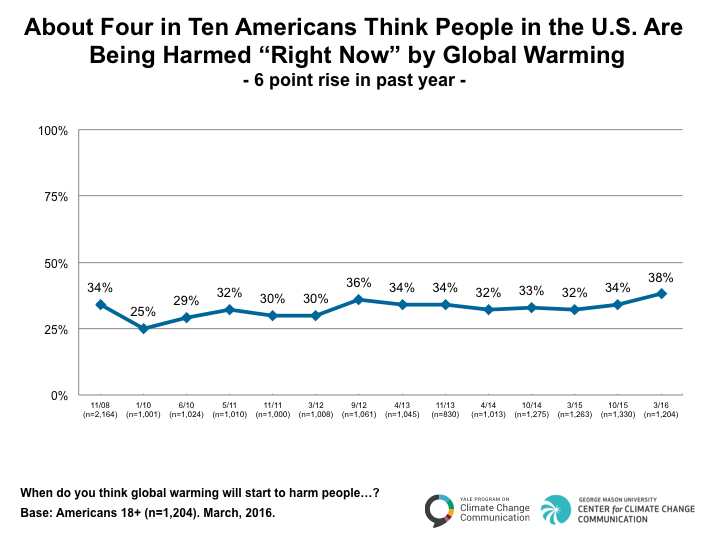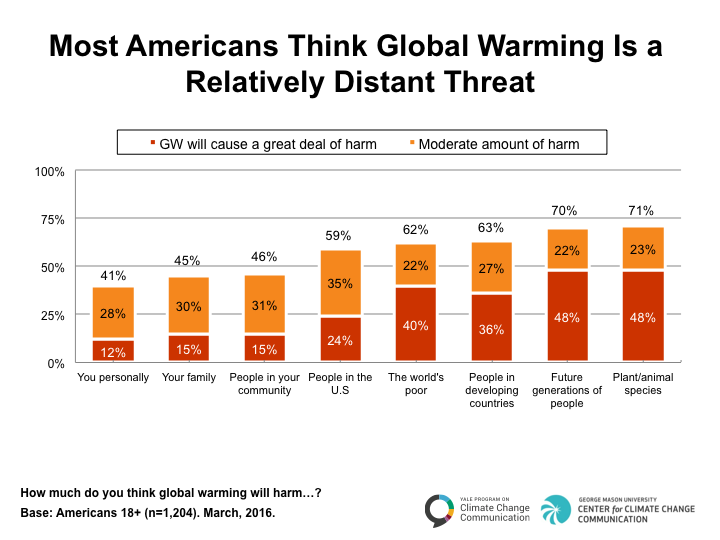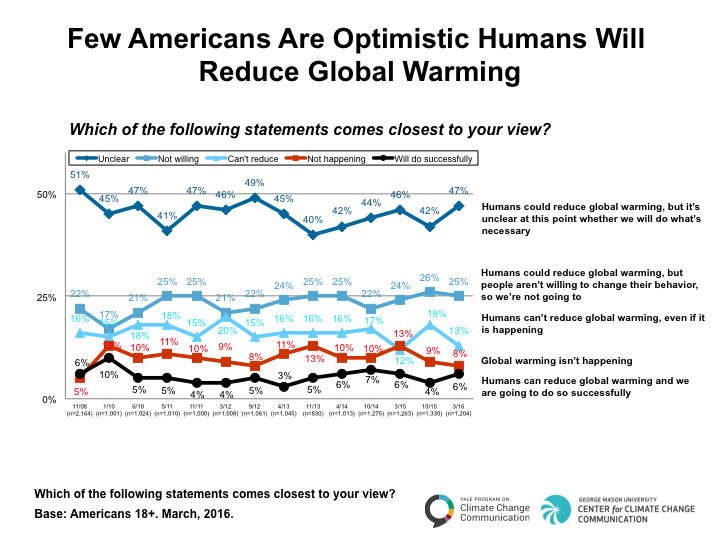Report · Jun 2, 2016
Climate Change in the American Mind: March, 2016
By Anthony Leiserowitz, Edward Maibach, Connie Roser-Renouf, Geoff Feinberg and Seth Rosenthal
Filed under: Beliefs & Attitudes
3. Perceived Risks of Global Warming
3.1. Four in ten Americans think people in the U.S. are currently being harmed by global warming.
The impacts of global warming are starting to be felt in the United States. According to the 2014 U.S. National Climate Assessment:
“Residents of some coastal cities see their streets flood more regularly during storms and high tides. Inland cities near large rivers also experience more flooding, especially in the Midwest and Northeast. Insurance rates are rising in some vulnerable locations, and insurance is no longer available in others. Hotter and drier weather and earlier snow melt mean that wildfires in the West start earlier in the spring, last later into the fall, and burn more acreage. In Arctic Alaska, the summer sea ice that once protected the coasts has receded, and autumn storms now cause more erosion, threatening many communities with relocation” (p. 1). http://nca2014.globalchange.gov/downloads
While only about four in ten Americans (38%) think people in the U.S. are being harmed “right now” by global warming, this number has risen 6 percentage points in the past year to a new record high.

3.2. Most Americans think global warming is a relatively distant threat, although a growing percentage are coming to understand it harms people.
Americans are most likely to think that plant and animal species (71%) and future generations of people (70%) will be harmed a “great deal” or a “moderate amount” by global warming. They are somewhat less likely to think people living in developing countries (63%), the world’s poor (62%), or people in the U.S. (59%) will face such harm.
They are least likely to think that those closest to themselves—people in their community (46%), their family (45%), and they themselves (41%) will be harmed.
Although Americans perceive the threat of harm from global warming to be more distant than personal, since spring 2015, the number of Americans who think climate change will cause harm to humans has increased substantially. More Americans now think global warming will harm:
- People in the U.S. (+10 percentage points since spring 2015)
- People in developing countries (+10 points)
- Future generations (+7 points)
- Them personally (+5 points)

3.3. Few Americans are optimistic humans will reduce global warming.
Nearly half of Americans (47%, up 5 points since fall 2015) say humans could reduce global warming, but it’s unclear at this point whether we will do what is necessary.
Whereas only 6% say humans can and will successfully reduce global warming, one in four (25%) say we won’t because people are unwilling to change their behavior, and 13% say humans can’t reduce global warming even if it is happening (down 5 points since fall 2015).
